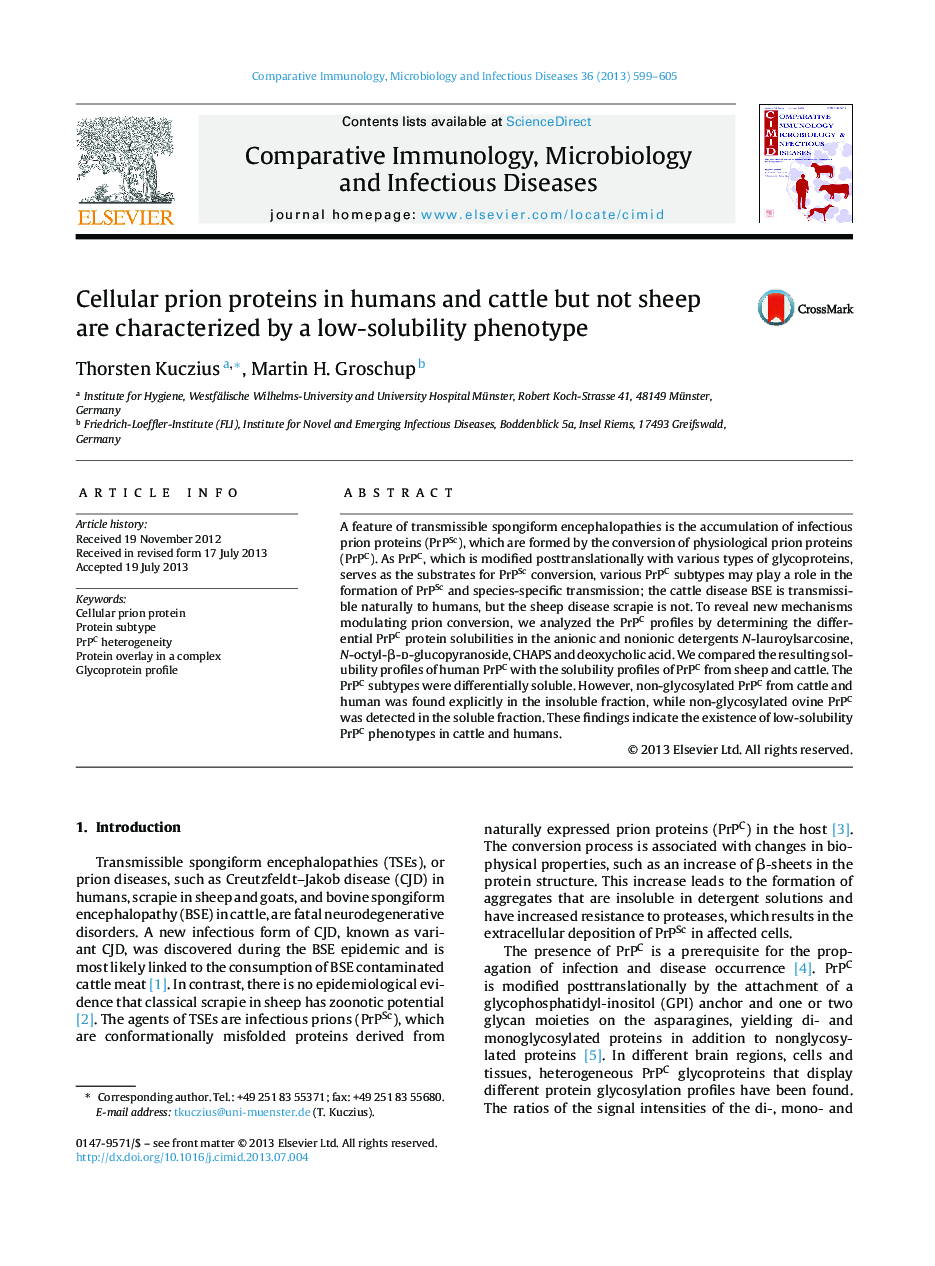| Article ID | Journal | Published Year | Pages | File Type |
|---|---|---|---|---|
| 10971356 | Comparative Immunology, Microbiology and Infectious Diseases | 2013 | 7 Pages |
Abstract
A feature of transmissible spongiform encephalopathies is the accumulation of infectious prion proteins (PrPSc), which are formed by the conversion of physiological prion proteins (PrPC). As PrPC, which is modified posttranslationally with various types of glycoproteins, serves as the substrates for PrPSc conversion, various PrPC subtypes may play a role in the formation of PrPSc and species-specific transmission; the cattle disease BSE is transmissible naturally to humans, but the sheep disease scrapie is not. To reveal new mechanisms modulating prion conversion, we analyzed the PrPC profiles by determining the differential PrPC protein solubilities in the anionic and nonionic detergents N-lauroylsarcosine, N-octyl-β-d-glucopyranoside, CHAPS and deoxycholic acid. We compared the resulting solubility profiles of human PrPC with the solubility profiles of PrPC from sheep and cattle. The PrPC subtypes were differentially soluble. However, non-glycosylated PrPC from cattle and human was found explicitly in the insoluble fraction, while non-glycosylated ovine PrPC was detected in the soluble fraction. These findings indicate the existence of low-solubility PrPC phenotypes in cattle and humans.
Keywords
Related Topics
Life Sciences
Agricultural and Biological Sciences
Animal Science and Zoology
Authors
Thorsten Kuczius, Martin H. Groschup,
